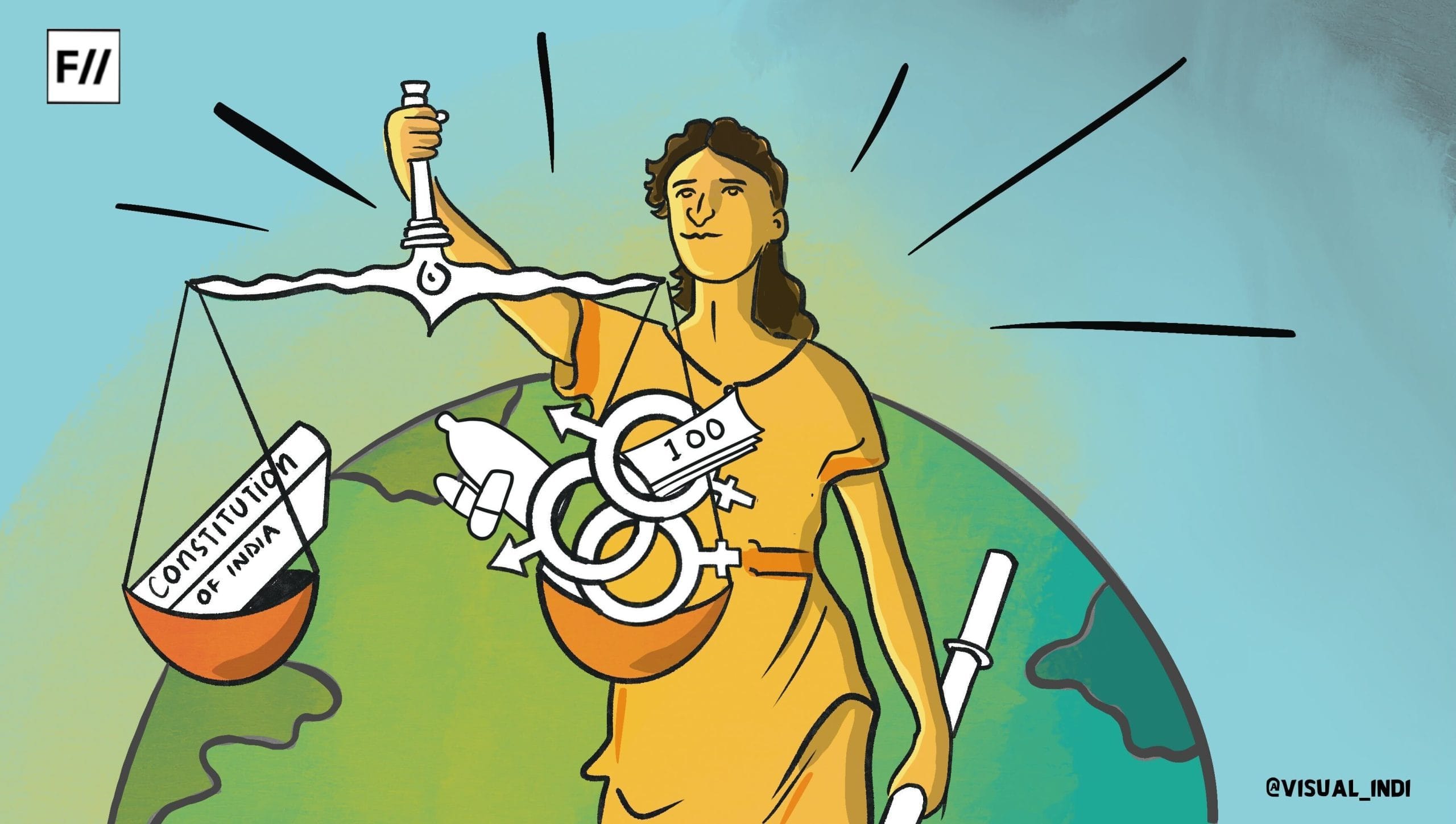Laws are enacted to guarantee the rights of all the citizens within a country, irrespective of caste, ethnicity, gender, etc. While all the countries ensure the laws and regulations for citizens, the laws may vary from country to country; for instance, the abortion laws are different in India than in the US or the UK. However, when it comes to laws pertaining to gender and the rights of gender minorities, a lot remains to be done and discussed. The intersection of gender and law is quite fascinating as it showcases how the rights and autonomy of women and other gender minorities are faring.
To reach significant gender equality and achieve gender justice, India needs laws to ascertain the rights of women and gender minorities. There needs to be a focus on the fact that reproductive rights are ensured through laws and regulations; there must be stringent and fast-tracked laws when it comes to cases of gender-based violence, and also ensuring rights of the LGBTQI community through marriage equality, ending violence against the community, etc.
India, in a landmark judgement, decriminalised same-sex relationships in the year in 2018; yet later on, the Apex court couldn’t ensure legalising same-sex marriage or ensuring marriage equality. Therefore, laws related to gender are quite entangled in the hegemonic, heteronormative socio-cultural fabric of India. Sentiments of the upper caste, the heterornormative section of society, are often considered while formulating laws.
When it comes to labour rights, women and other gender minorities should have laws to ensure pay parity, safety within the workplace, maternity leaves, period leaves, etc. While India does have laws like POSH to ensure the protection of women against sexual harassment in the workplace, many loopholes remain when it comes to pay parity, period leaves, etc.
India must be lauded for its progressive laws related to gender, like abortion laws, the POSH Act, etc, however, many areas that affirm gender justice and equality, like marriage equality, pay parity, and menstrual leaves, remain bleak and unaccounted for.

To ensure that laws and regulations related to gender are passed, women and other gender minorities need to be well-represented in decision-making, policy-making, and law-making. More women from various backgrounds of caste, class, and ethnicity need to be present in parliament and in the courts to ensure that women’s voices are heard and federally supported.
Hence when it comes to gender and law, there needs to be a focus on two major issues, one, that the laws related to women and gender minorities are to be passed without considering the collective consciousness of the upper caste hetronormative section of society, meaning that minorities are to be taken into consideration also. Secondly, the representation of women in the parliament and the courts to ensure that laws related to gender are enacted and passed. The Supreme Court “State of the Judiciary” report (2023), mentions that there are only 36.3 per cent in the district judiciary. Moreover, there are only 13.4 per cent of judges at the High Court level and 9.3 per cent of women judges in the Supreme Court. So, representation can solve the problems by having only hegemonic, hetronormative laws.
Therefore, FII wants to highlight the disparities and discrepancies in gender laws in November and shed light on how we can achieve more gender equality and justice through laws. We are inviting submissions on Gender and Law throughout November until the 25th of the month.

Here are some of the themes that you may find helpful in putting together your thoughts:
- Laws on gender-based violence
- Laws and LGBTQI community
- Representation of women in decision and law-making
- Laws on abortion, menstrual leaves, reproductive rights
- Laws and safety of women and gender minorities
- Intersectionality in law
- Gender bias in the courtroom
- Women’s work and pay in the legal field
- Law and colonialism
- History of laws that came from organising/movement building
- Laws on women’s rights
This list is not exhaustive, and you may feel free to write on topics within the theme that we may have missed out on here. Please refer to our submission guidelines before you send us your entries. You may email your submissions to shahinda@feminisminindia.com.
We look forward to your drafts and hope you enjoy writing them!
About the author(s)
Feminism In India is an award-winning digital intersectional feminist media organisation to learn, educate and develop a feminist sensibility and unravel the F-word among the youth in India.




